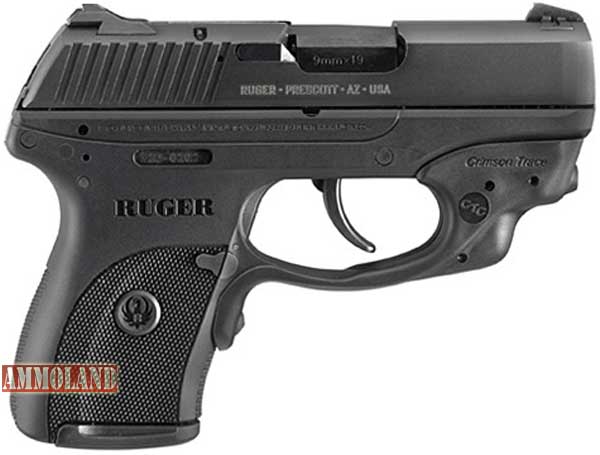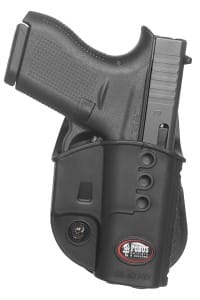The Best Gun for Concealed Carry?
Eden Prairie, Minnesota –-(Ammoland.com)- What should one consider when searching for a handgun suitable for concealed carry?
This question comes up over and over in classes in one way or another. And the answer isn’t quite straight forward or as easy to arrive at as one might think.
Reason being, the answer will potentially be very specific to the person asking the question.
Probably one of the most important considerations when deciding what gun one will carry will be their lifestyle. What I mean by lifestyle is the multitude of factors that affect our everyday life. From the small things like what you wear on a daily basis to the big things like your career or family life, many of these factors should be considered if one wants to avoid an abrupt realization that the gun he or she invested in isn’t what they actually needed or wanted.
Analyzing our lifestyle within the context of carrying a gun will help us more clearly define exactly what we want.
For most people this is the easy part; it doesn’t take long(even for individuals who may be relatively inexperienced with the subject of carrying a gun) to make statements about what they want in a carry gun. Statements such as “I want something that’s going to be easy to conceal” or “something that’s going to be comfortable to carry” are not bad or shallow things to want in a carry gun, although it is foolish to be completely ignorant of the compromises that come at the expense of your preferences.
Most are quick to list the things they want in a handgun, but how many identify, accept, and truly understand the compromises in their decision.

There is a pre-requisite to understanding these compromises and that is education. Obviously one will not be able to identify these compromises without first having knowledge of them. Assuming we are working with someone who has zero knowledge we obviously start from the ground up with basic handgun familiarization: safety of course, handgun anatomy, understanding various action types, etc. This could be something like a beginner’s handgun course based more in a classroom environment or maybe even your states basic requirement for concealed carry training.
Beyond the ground level basics its very important to graduate to a class that has more range time than your average concealed carry course that teaches you how to shoot and maybe even gives you an opportunity to shoot different types of handguns for comparison. More training beyond these basics that give you a solid knowledge base is definitely encouraged and I would argue, is required. But, even with a good basic knowledge one can not only more readily determine what they are looking for in a handgun but also quickly identify the compromises that are attached to it.
So to illustrate, the commonly held preference for a small handgun more often than not comes from a desire for something that will be easy to conceal and comfortable to carry. These are perfectly reasonable preferences so long as one understands the compromises associated with the small gun.
The more educated/experienced one is, the more compromises they’ll be able to identify;
- The magazine capacity(how many rounds the gun can hold) may be low
- Being smaller and lighter, the gun may have more felt recoil or snap
- The shorter sight radius may make it more difficult to be precise (the sights themselves may be designed to be very low profile to keep from snagging if one was to carry in a pocket and therefore make the sights themselves more difficult to see and align).
- Your grip may not be as ideal due to the frames smaller size and therefore reduce surface area contact with your hand (making it potentially even more difficult to manage the muzzle flip of the gun).
These are just a few of many examples of the compromises that one should be aware of. There is no perfect carry gun that will work for all because what I value may not be what you value, and the compromises I’m willing to accept, may not be compromises you’re willing to accept.

As long as an individual can identify these issues, live with them, and most importantly keep them in consideration in their training, then who’s to say that person shouldn’t carry that gun.
There is no perfect carry gun that will work for all because everyone values different features in their handguns.
There may however be good places to begin your search as you start to flesh out what you’re looking for in a carry gun. Modern sub-compact and pocket pistols have some of the more obvious downsides that accompany their size but are extremely popular as many, both uneducated and educated, value comfort, light weight, conceal-ability, etc. when they think of a carry gun.
The market responds to this demand and has a slew of small sub-compact to pocket pistol sized options such as the Smith&Wesson M&P Shield, Glock 42, Ruger LC9, and the list goes on.
Some larger but not to large options such as the Glock 19 are extremely popular giving people a reasonably sized compact gun that many could comfortably carry and conceal while being perhaps a little more comfortable to shoot as well. There’s a plethora of options, which is all the more reason for people to educate themselves as much as possible.
The more they know, the easier it is to quickly identify the compromises they’re willing to accept and the compromises they’re not willing to accept.
Reprinted with permission from AmmoLand.
Leave a Reply